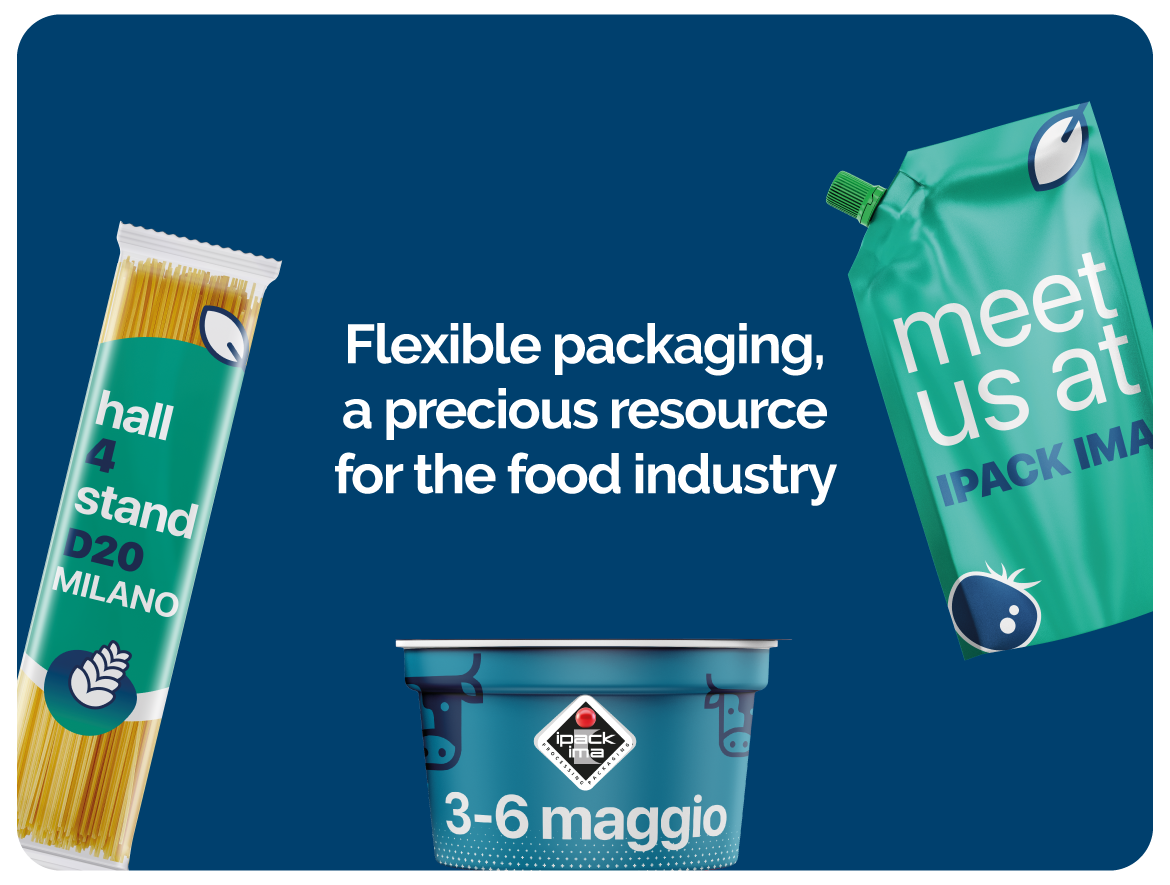The food industry requires packaging to be not only a powerful differentiator, but a fundamental asset to ensure the integrity, protection, conservation, practicality, sustainability and transport of products.
Flexible packaging responds perfectly to all these needs because it manages to combine the lightness of paper, the practicality of plastic and the safety of aluminium.
There are many food companies that choose to replace rigid packaging with flexible packaging, and fuelling this trend is the greater propensity to buy food online. In the context of e-commerce, the growth of food sector, after the peak due to the pandemic, does not seem to be slowing down, with an increase equal to + 45% in the last year alone.
Why the food industry chooses flexible packaging
Faced with this trend, the food industry has clearly had to re-evaluate the packaging of products, both to increase shelf life and to make them lighter and more resistant during transport. Only 50% of transported food arrives at its destination intact and, in the battle against food waste, flexible packaging is essential to prevent and limit product losses throughout the supply chain. This is why pouches are preferred to glass jars and cardboard boxes are replaced by bags in flexible packaging.
It might not seem like a green choice, but the steps forward made by the flexible sector in their search for 100% recyclable and organic materials, show that this solution — lighter, more manageable and less bulky — in fact allows for the storage of a much wider range of products by optimising their transport and significantly reducing the use of fuel and greenhouse gas emissions. Furthermore, flexible packaging requires fewer raw materials and less energy, and is 100% recyclable
MACA’s green sleeves
Maca is one of the companies specialised in flexible packaging that has made enormous steps forward in the development of green materials, in the design of even more high-performance packaging systems and in the creation of innovative flexible packaging, both from a functional point of view and from that of environmental sustainability.
Stretch sleeves, for example, are one of the greenest Maca solutions because, to cover all angles of the surface of a primary packaging, following its shape, they do not require the use of heat and glue. Furthermore, being made of 100% recyclable LDPE and printed with water-based inks, the packaging is eco-friendly and this offers a serious advantage to brands conscious of environmental protection.
Discover all Maca flexible solutions at IpackIMA – PAD 4 stand D20


